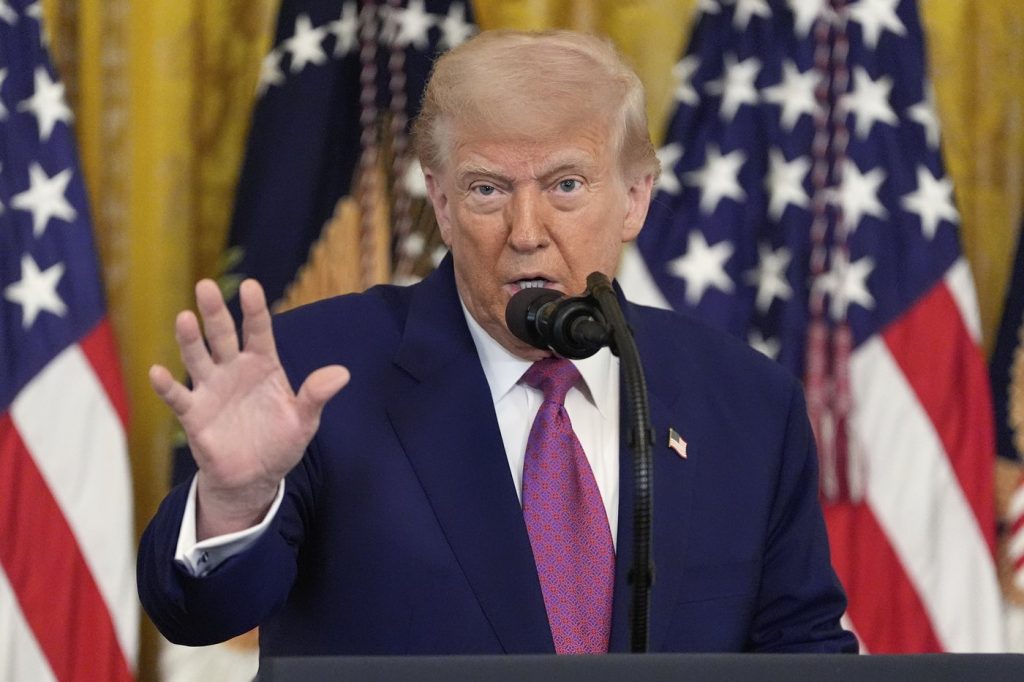On Sunday, President Donald Trump issued a stern warning to Iran about potential retaliation against U.S. targets in the Middle East. His remarks came amidst escalating missile exchanges between Israel and Iran that had entered their third consecutive day. Trump emphasized that the United States had no involvement in these attacks, despite Iran pledging to hold the U.S. accountable for its support of Israel, which has included supplying significant military resources.
In the ongoing conflict, Israel has launched strikes targeting Iran’s Defense Ministry headquarters in Tehran and various locations tied to its nuclear program. Meanwhile, Iranian missiles have successfully evaded Israeli air defenses, causing damage within Israeli territory. "If we are attacked in any way, shape, or form by Iran, the full strength and might of the U.S. Armed Forces will come down on you at levels never seen before," Trump declared.
Later, Trump expressed optimism on social media, suggesting that “Iran and Israel should make a deal, and will make a deal.” He claimed a successful track record in de-escalating international conflicts, likening his mediation in this potential scenario to his previous success with India and Pakistan after their recent tensions over cross-border confrontations.
In April, India had conducted airstrikes within Pakistan following an attack that killed 26 tourists in Indian-controlled Kashmir, which Pakistan denied responsibility for. The situation escalated into heavy exchanges of fire, missile, and drone strikes between both nations, marking a significant increase in hostilities. Trump has controversially suggested that he helped facilitate a ceasefire between the two nations, a claim disputed by the Indian government.
Moreover, the former president highlighted his administration's attempts to mediate other disputes, such as those between Serbia and Kosovo, and Egypt and Ethiopia, asserting his confidence in achieving “PEACE” between Israel and Iran. He stated, “Many calls and meetings now taking place. I do a lot, and never get credit for anything, but that’s OK, the PEOPLE understand. MAKE THE MIDDLE EAST GREAT AGAIN!”
The intensifying conflict poses a challenge to Trump, who campaigned on promises to end the protracted wars in Gaza and Ukraine while promoting a foreign policy geared towards reducing U.S. involvement in international disputes. His administration's previous strategy toward Iran involved pressuring the nation to abandon its nuclear ambitions following the 2015 nuclear agreement, which initially aimed to restrict Iran's uranium enrichment in return for lifting economic sanctions.
Recently, Trump had a conversation with Russian President Vladimir Putin to discuss the rising tensions between Israel and Iran, highlighting the significance of the crisis as he prepares to attend a G7 leaders summit in Canada. Issues surrounding the conflict will likely dominate discussions with leaders from Britain, Canada, France, Germany, Italy, Japan, and the European Union.
Trump’s foreign policy stance faces scrutiny from some of his influential political allies, who advocate for maintaining a clear distance from Israel’s conflict with Iran. Voices such as Rep. Marjorie Taylor Greene, Turning Point USA's Charlie Kirk, and former Fox News host Tucker Carlson have pointed out that Trump’s voter base supports him largely because of his non-interventionist stance. Kirk specifically voiced concerns that the conflict could create a rift within the MAGA movement. Similarly, Senator Rand Paul lauded Trump’s restraint but warned that achieving a negotiated settlement would be difficult, suggesting that further violence is likely.











